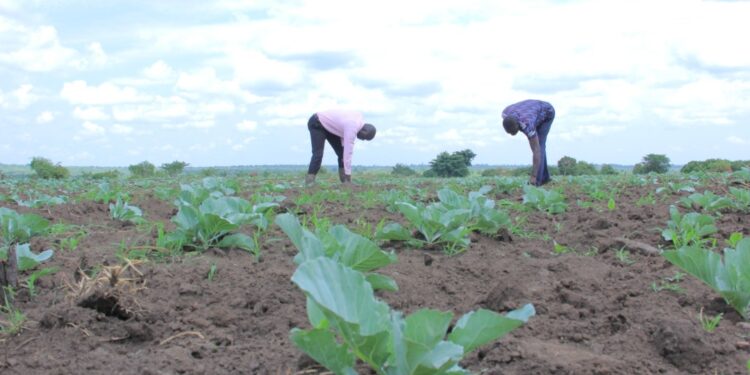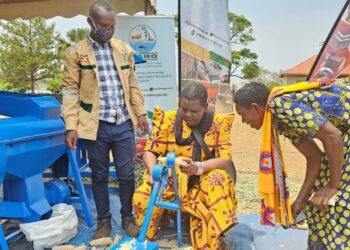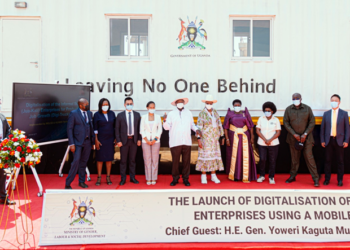Equity Bank Uganda has significantly contributed to the commercialization of smallholder farming by extending a loan book worth Shs130 billion, transforming small-scale farmers into thriving agribusiness owners.
In a country where over two-thirds of the population relies on agriculture for their livelihood, and with a rapidly expanding population, investing in agriculture offers a dual advantage: bolstering food security and creating jobs. Recognizing this, Equity Bank set out to support the agricultural sector by enabling smallholder farmers to scale their operations and integrate more deeply into the broader agri-business value chain.
Most smallholder farmers in Uganda produce primarily to meet their immediate household food needs, with only a small surplus being sold in the market. However, Equity Bank identified an immense opportunity for socio-economic transformation through improving the productivity of these small-scale farmers. By providing secure and equal access to land, agricultural inputs, financial services, knowledge, and markets, the bank saw a pathway to elevate these farmers from subsistence to a more commercial orientation.
To achieve this, Equity Bank’s agricultural lending initiative began with a focus on smallholder farmers, offering loans as low as Shs100,000. Though seemingly modest, these loans have made a significant impact on farmers’ operations, allowing them to purchase improved seeds, fertilizers, and basic farming tools.
As their productivity increased, farmers were able to expand their production from subsistence to market-oriented agriculture. The bank’s total lending to this sector now exceeds Shs 20 billion, reflecting the growing demand for financing among smallholders seeking to transition to commercial farming.
Beyond direct financial support to farmers, Equity Bank has extended its services to other players along the agricultural value chain, such as suppliers of inputs, processors, and aggregators. This holistic approach has facilitated agricultural commercialization by supporting agro-processing, which adds value to raw agricultural products and enhances market access for farmers.
As a result, rural households have experienced improved incomes, reducing poverty and positively affecting social indicators like health and education. In total, Equity Bank has disbursed loans worth Shs 130 billion to 71,423 small and medium-sized farmers across Uganda, with this financial intermediation supporting food production, processing, transportation, and increased access to local and regional markets.
The financial support provided by Equity Bank has also been pivotal in promoting the adoption of advanced agricultural technologies. Farmers have been able to invest in improved seed varieties and mechanized tools, such as tractors, which enable them to cultivate larger fields and increase both the quality and quantity of their produce.
These advancements have significantly enhanced overall efficiency, ensuring better yields and higher incomes for farmers. Additionally, the bank has promoted climate-smart practices, such as irrigation systems, which are vital for managing irregular rainfall and ensuring sustainable farming practices. Many farmers have successfully implemented these systems, demonstrating resilience against climatic variability and securing their agricultural productivity.
Equity Bank’s efforts go beyond mere financial assistance; they have also focused on building farmers’ capacity to manage their enterprises more effectively. Over 10,000 farmers have been trained in financial literacy and enterprise development, equipping them with the knowledge and skills needed to make informed financial decisions and adopt modern farming techniques. Moreover, hundreds of Village Savings and Loan Associations (VSLAs) have been integrated into the formal banking system, enabling these community-based financial groups to access a broader range of financial services.
To further address the challenges smallholder farmers face in accessing loans—such as data storage, pests and diseases, turnaround time, and outdated traditional equipment—Equity Bank has put in place systems to help mitigate these issues. For risks associated with pests, diseases, and adverse weather changes, the bank has developed a comprehensive bancassurance service that provides coverage against these risks. Additionally, the bank supports reforestation programs focused on tree planting, demonstrating its commitment to sustainable agriculture and environmental conservation.
Equity Bank’s efforts in supporting the agricultural sector have not gone unnoticed. The bank was recognized as the national Agri-Financer of the Year at the Annual Agricultural Awards, a testament to its significant contributions to Uganda’s agricultural development.
Through its strategic investments, innovative financial products, and commitment to building farmers’ capacities, Equity Bank has played a crucial role in transforming smallholder farmers into vibrant agri-business owners, contributing to broader socio-economic development in Uganda.
Do you have a story in your community or an opinion to share with us: Email us at editorial@watchdoguganda.com













